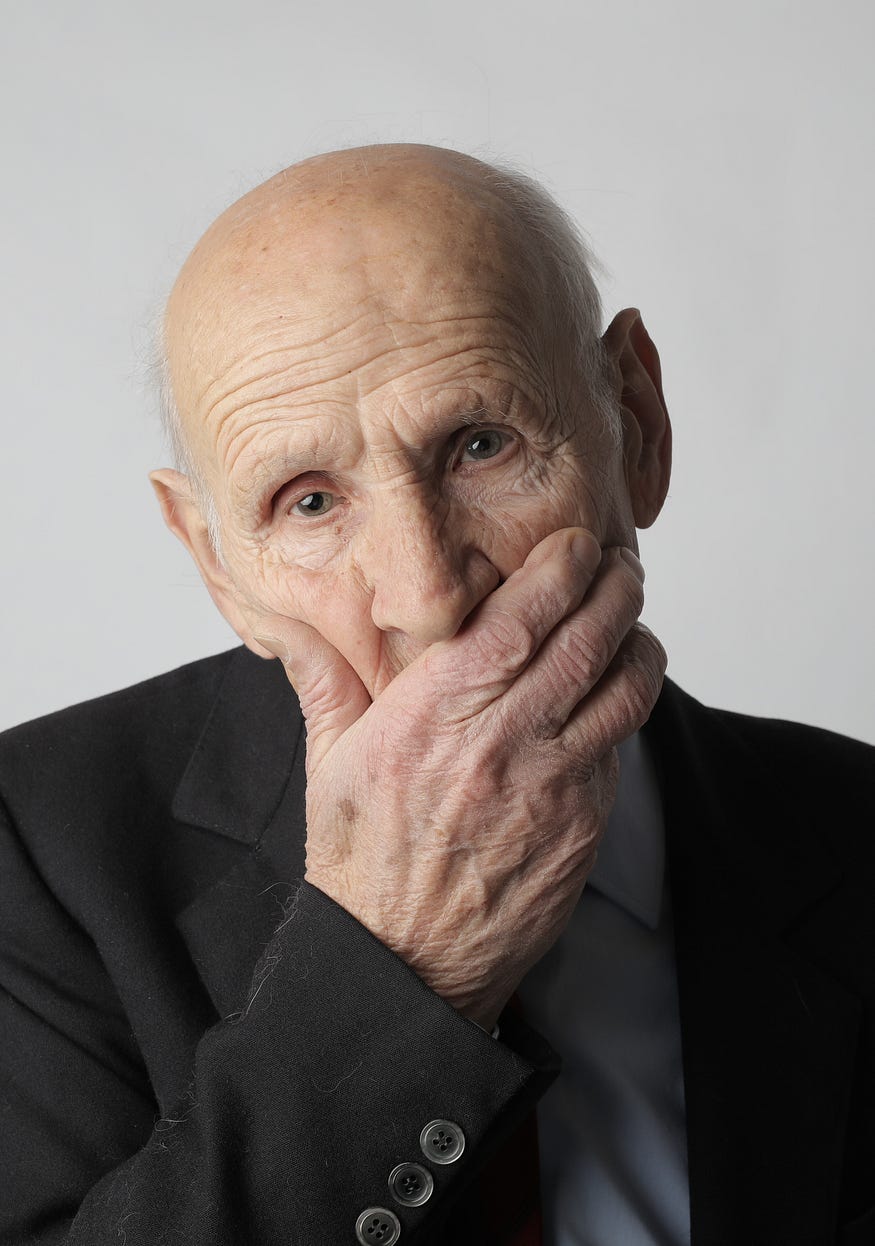Single after divorce or death, not flourishing.
Author’s Note: I often move blog posts from Medium to this site, when the subject matter is appropriate for this blog’s purpose. I was stunned, frankly, at the many comments this piece received as resonant for many people. Men, particularly, commented on how it was easy to lose friendships after retirement and drift into solitude, not always by choice but by default. The highlighting is by readers.
——–
I know several men who are into older age, older than sixty, and not doing well. These struggling men include a former very successful businessman and others who also had respected jobs. They are now unemployed into retirement, divorced or widowed, and single. The “retirement” may have happened years earlier than 65 when a job loss transitioned into early retirement without a plan.
I have reached out to a family member who doesn’t answer mail, has turned off his telephone, and doesn’t own a computer. Short of showing up at his door 1500 miles away, he has made himself unavailable. I depend on his sister to physically check-in on him every so often.
I have read, and know of, the phenomenon of the ne’er-do-well son moving into the family home with aging parents, to provide him with housing and the parents with care. The problem is that this situation is one of necessity, not the choice of who would be the best care provider (in fact, older parents may worry about the struggling adult or he may be a financial burden).
Single women seem to have the fallback of a social network. I know women who struggle financially but have robust friendships and family relationships to help them through older age. Perhaps it is a celebration of freedom from the burdened, not happy, marriage that provides older women a happier choice. I have happily-single women in my network who are long divorced from marriages that didn’t work for them.
When I was growing up as a boomer child, most of my friends’ mothers were stay-at-home housewives. The exceptions were teachers or secretaries. Looking back on it, most of those working women were married to alcoholics or otherwise unreliable husbands. But in old-fashioned marriages, the husband and wife stuck together, and the wives were the glue that attached their ne’er-do-well husbands to extended family or the rest of the world. Annual Christmas letters with news updates were most often written by women, as was other family correspondence.
Men, of course, were married to dysfunctional women, but there seems to be less written about this situation — or is it a less frequent occurrence?
In reading studies of happiness and marital status, I was stuck finding any consistent conclusions as there are so many variables now: children, no children, cohabiting, and multiple marriages.
Extended family members have divorced when the situation becomes intolerable. Depression is probably an undiagnosed or untreated factor in men. It may be that old-fashioned notions of independence interfere with men seeking treatment as often as women. Several articles in the literature examine the older, depressed male issue.
A ten-year-old study from the U.S. National Institute of Health discusses male shame when images of masculinity no longer meet the perceived reality of lives men are inhabiting. This more recent study from the UK identifies these issues for older, lonely men:
When talking about loneliness, the men spoke about:
being socially discarded
not having a purpose
a sense of emptiness, or cold ache
being of little value to others (‘feeling like nobody cares’)
feeling cut off from broader society.
The study, Older Men at the Margins, was conducted by Dr. Paul Willis at the University of Bristol.
I like men. I am surprised by some who have faltered into old age. I also enjoy robust friendships with women, who have mostly flourished into older age.
I recognize that my point-of-view is skewed by my lived experience. What is your experience?


Will R.
Hi Sharon,
Just a short message from a aging gracefully old man, 73 and going strong. I don’t know that having money or not having money has much to do with having purpose in life or feeling fulfilled. Security doesn’t really exist. Old age, sickness and death come to us all. It is best not to be impressed, judge and put yourself, or anyone else, in some made-up category. Labels are not real. Reality isn’t defined by your thoughts, judgment or constructs. You are much more than what you think. Everything changes and everything is connected, life is a journey that has just begun in this very moment, no matter how old you are. Women and Men suffer for many of the same reasons. I often think of the John Prine song “Hello In There”. Thank you for your thoughtful post.
🙂
Cheryl West
Older white American men commit suicide at 3X the rate of any other group, more than women or men of color. Sociologists are still trying to determine why this is so. I suspect it correlates with white men’s identity being associated with their work; perhsps they have difficulty coping with no longer having work and purpose. Women seem to have a better ability to adjust to a changed status in life. Perhaps men of color have more robust family connections. The suicide rate went up in 2021 but it was highest in the age 15 – 24 age group for men. During the covid lock-downs many people were out of work. Perhaps for older men working as long as they can is helpful. I remember my own father imparted that advice and he worked well into his 80s.